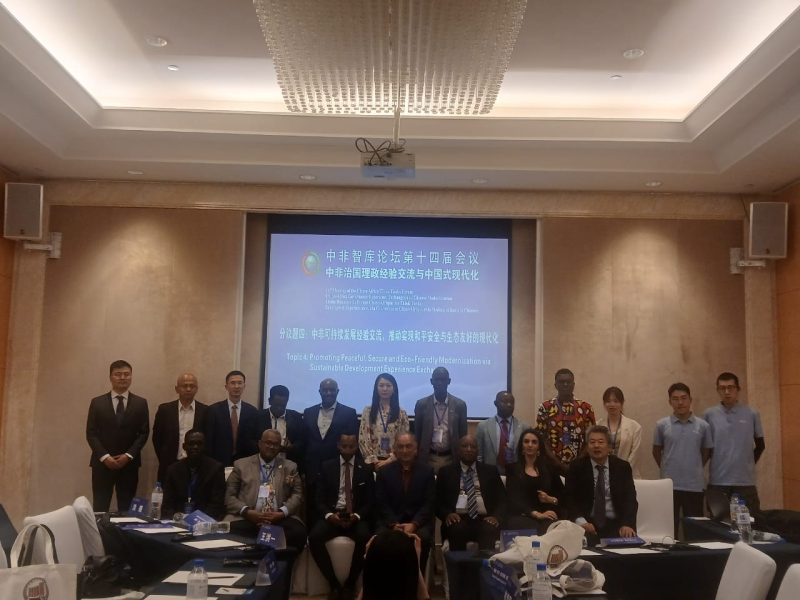
The 14th meeting of the China-Africa Think Tank Forum has kicked off in Kunming City, China, drawing together scholars, policymakers, and development experts for crucial discussions on Africa’s modernization and the lessons to be learned from China’s success.
Among the participants, Edmund Yakani, Executive Director of the Community Empowerment for Progress Organization (CEPO), delivered insightful reflections on how Africa could adopt strategies inspired by China’s transformative journey.
Yakani described the forum which begun on Tuesday as “remarkable and empowering,” shedding light on how China’s modernization and rural revitalization have propelled the nation into a significant global position.
“The meeting was rich in learning how China’s modernization and rural revitalization have made what China is today in the global space and influence,” he stated.
Central to China’s modernization, according to Yakani, is leadership that prioritizes citizens’ interests over personal or elite ambitions.
“Citizens’ interest-based style of leadership is key in China’s current modernization. For each African state to embark on modernization like China, it requires the leaders and political elites to undertake the concrete primary responsibility of working for the citizens’ interest, not individual and group pockets,” said Yakani.
He emphasized that one of China’s key successes has been the avoidance of armed conflict, choosing dialogue as the principal means of resolving societal challenges.
“China’s modernization in all sectors of life was successful because the leaders and political elites resolved to avoid armed violence and embrace dialogue for sorting out human and societal challenges,” he explained.
Yakani urged African leaders to step away from the destructive cycle of political power struggles that turn citizens into victims, instead advocating for effective utilization of national resources and human potential.
The forum further reinforced the significance of people-to-people coordination, solidarity, and mutual dialogue for sustainable development.
“The approach of people-to-people coordination, solidarity, mutual dialogue, and learning for sustainable development is the right pathway for leaders to opt to foster under the African-China cooperation,” Yakani noted.
He called on African leaders to recognize China’s modernization as proof of citizen-centered governance.
“The narratives about China as a positive force in modernization are proven to be real, and this makes us appeal to our leaders to learn from the Chinese approach of working for citizens, not for themselves or their group of individuals,” he remarked.
Yakani concluded with an optimistic outlook for South Sudan, highlighting its potential to embrace modernization inspired by China’s experience. “South Sudan has a greater opportunity to engage in modernization and rural revitalization from the Chinese experience,” he stressed.
As the discussions unfolded, the forum sent a strong message: Africa’s progress depends on responsible leadership, collaborative efforts, and a resolute commitment to citizen-centered development.

